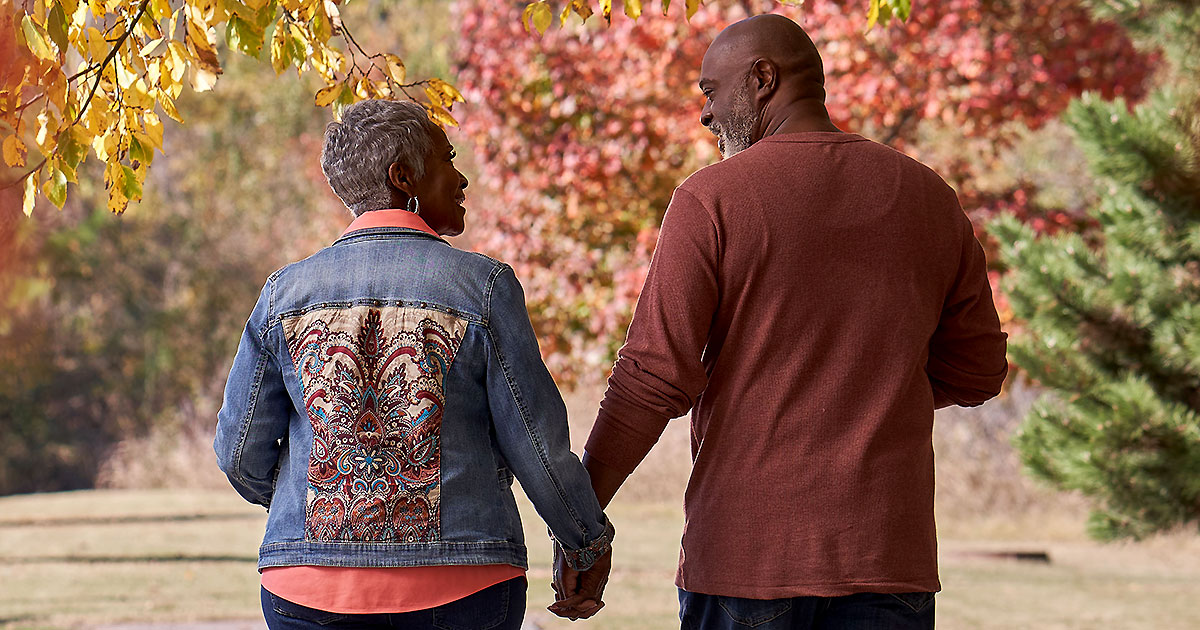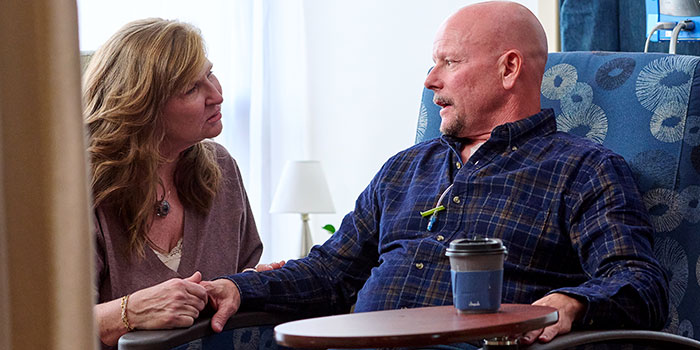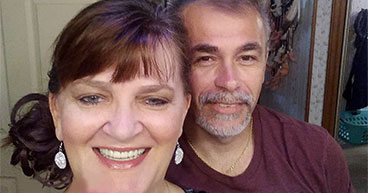
A cancer diagnosis is stressful enough for patients, but it may have even more of a psychological impact on their spouses or partners. The emotional, physical and financial burden that accompanies a cancer diagnosis and treatment significantly affects the mental health of caregivers who are closest to patients.
As cancer caregivers, spouses or partners may take on a multitude of duties, including:
- Keeping track of prescriptions and giving medications
- Helping with physical therapy or other clinical tasks
- Assisting with personal tasks, such as using the bathroom or bathing
- Scheduling and driving to doctor’s appointments
- Managing health insurance, medical billing and other financial tasks
- Giving emotional and spiritual support
The burden of taking on these unfamiliar responsibilities, combined with anxiety over the health of a loved one, may lead to mental health disorders among cancer patients’ partners, according to a new study published in JAMA Network Open.
In this article, we’ll explore:
- The psychological impact of cancer on spouses
- Which spouses are most at risk of psychiatric disorders?
- Which cancer types were associated with the highest risk?
- Resources for spouses of cancer patients
If you’ve been diagnosed with cancer and are interested in a second opinion about your diagnosis and treatment plan, call us or chat online with a member of our team.
Psychological impact of cancer on spouses
The researchers set out to determine whether spouses of cancer patients were more at risk for mental health disorders initially and over time vs. spouses of individuals without cancer.
The analysis found that cancer patients’ spouses were 14 percent more likely to seek treatment for psychological disorders than spouses of people without cancer. In the first year of a cancer diagnosis, the risk was even greater: 30 percent of spouses sought treatment for mental health issues, especially depression and stress-related disorders. The researchers also analyzed instances of anxiety and substance abuse.
The study is significant in that it’s based on comparative analyses of a large population (3 million people) over several decades and over various stages of the cancer journey.
“Spouses of patients with cancer showed an increased risk of psychiatric disorders requiring secondary (hospital) care, both immediately after cancer diagnosis and during the decades thereafter,” the researchers concluded. “The risk increase was greater during the first year after cancer diagnosis, for fatal cancer, among male spouses, and among spouses with preexisting psychiatric morbidity.”
Nancy Schell, MD, Psychiatrist at City of Hope Chicago, agrees a lack of mental health support is impacting cancer patients’ spouses. “Health care systems focus only on the patient,” she says. Another compelling factor may be that care for spouses can’t be billed, so some systems have neither the staff nor the time to spare.
As the primary source of social and physical support, spouses play a vital role in the recovery and quality of life of a partner going through cancer treatment. “The spouse needs to understand what’s happening—the illness, its treatments, prognosis and, most importantly, how they can help the patient,” Schell explains. “Health care systems can engage spouses in education about the illness as well as self-care programs for caregivers.”
Schell encourages spouses to speak up and ask for the help they need. “Caregivers need to remember they can’t give good care if they can’t care for themselves,” she adds.
To help better prepare for the additional responsibilities and stress of caregiving, spouses or partners should ask their cancer care provider these questions:
- What are my loved one’s physical and psychological challenges likely to be?
- What types of everyday support is he or she going to need and for how long?
- What resources are available to help with care when he or she is released from the hospital?
- Is mental health counseling available for me and my family in addition to the cancer patient?
- Who can I talk to about the costs of my loved one’s care and my options for payment?
- If we discover that treatment isn’t helping or my loved one chooses to stop treatment, what resources are available to help me cope?
Which spouses are most at risk of psychiatric disorders?
Several groups of people were identified in the JAMA study as potentially high risk for developing mental health disorders and likely to benefit from behavioral health or psychiatric care. Among the high-risk groups were:
- Spouses of patients in their first year of diagnoses
- Spouses of cancer patients treated for more advanced-stage cancer and/or with a poor prognosis
- Male spouses aged 40 to 59 or 60 to 79 (at a slightly greater risk compared to women)
- Male and female spouses who’ve experienced mental health issues prior to their spouses’ cancer diagnosis
- Spouses experiencing the death of a loved one to cancer
“Hospitals may offer counseling and psychiatric services, perhaps group therapy,” Schell says. “Compassionate and caring staff is extremely important. Systems can also provide for caregivers’ basic needs,” like providing meals, arranging for massages, meeting with a chaplain or simply offering a private area or room to rest.
Which cancer types were associated with the highest risk?
Of the 20 types of cancer represented in the study, spouses of patients diagnosed with esophageal, lung, pancreatic or liver cancer were the most likely to experience mental health issues. These cancers are more likely than some other cancers, including breast and prostate, to be diagnosed at a more advanced stage and have a poorer prognosis.
Since advanced-stage and complex cancers cause a greater caregiving burden and increased concerns of the patient’s longevity, it’s not surprising that these patients’ spouses and partners were at the highest risk for experiencing anxiety and other mental health disorders.
“Cancer of any type is a major stressor,” says Schell. “You don’t have to have a mental illness to talk to a counselor or therapist. Look for support groups focused on your partner’s particular type of cancer.”
Resources for spouses of cancer patients
Where can you find mental health support when caring for a loved one with cancer? Schell encourages spouses to start with their partners’ care team. She also suggests searching online for local support groups under “self-care” and “care for the caregiver.” To find a therapist or psychiatrist covered by your plan, search your insurance company’s website for providers in your network.
Here are a few more helpful informational and mental health resources for caregivers:
- The American Cancer Society offers an interactive caregiver resource guide, support videos and local resources by state.
- The National Alliance on Mental Illness provides online information, activities and support groups by state and county,
- Cancer Support Community (national helpline: 888-793-9355) offers support groups by ZIP code.
- The National Cancer Institute’s Support for Caregivers program provides practical tips and information on caring for yourself and finding support.
- Substance Abuse and Mental Health Services Administration (SAMHSA) has an online directory of treatment centers and 24/7 suicide prevention and crisis helpline (call or text 988).
If you’ve been diagnosed with cancer and are interested in a second opinion about your diagnosis and treatment plan, call us or chat online with a member of our team.




